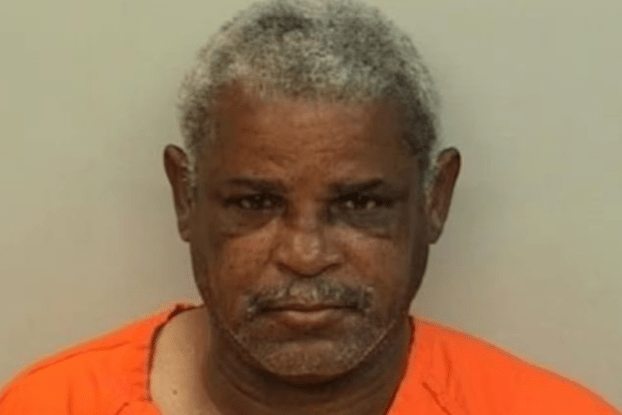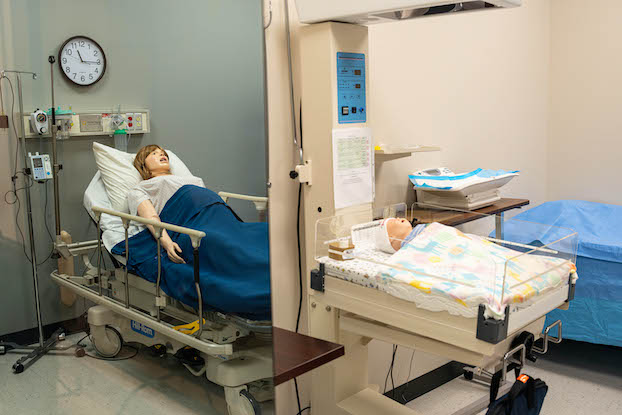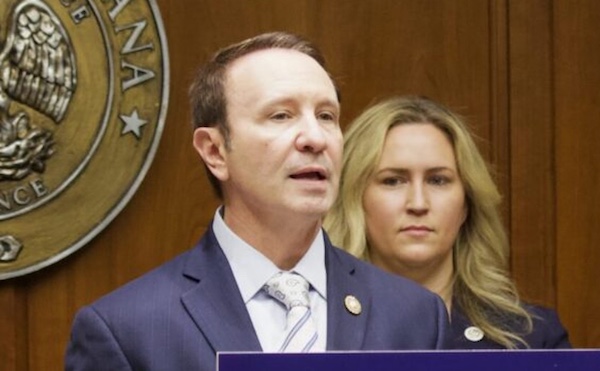DNA leads to conviction in 1988 cold case rape trial
Published 7:19 pm Thursday, April 10, 2025

- Dartanyan Breaux
Jurors took an hour and a half to convict Air Force veteran Dartanyan Breaux of aggravated rape Thursday night in a 1988 cold case.
Breaux, 59, was accused of climbing through the victim’s window during the Fourth of July weekend 37 years ago, then beating and raping her.
The victim told jurors on Wednesday she had lived alone in a four-unit apartment on Gauthier Road when the rape happened.
“It was early morning Sunday and I saw somebody trying to come in my window,” she testified. “First thing I saw was a foot coming through. He obviously couldn’t get in that way so the foot went out. I learned later that he had grabbed a bicycle to help him and then he came in headfirst.”
She said as he entered the room, she ran to her kitchen to call the police. She had just heard the operator’s dial tone when she saw the man coming towards her.
“I tried to get to the front door. I did open it and screamed but he shut it.” She said the man then threw her to the ground and started punching her.
“He was on top of me, punching my face,” she told jurors. “Then he dragged me to the bathroom, closed the door and locked it.”
She told the jurors the rape lasted “long enough.”
Her case sat dormant for more than three decades until the Federal Bureau of Investigation-managed Combined DNA Index System (CODIS) sent a match notification to the Louisiana Crime Lab in 2023.
Southwest Louisiana Criminalistics Laboratory Supervisor Monica Quaal testified Thursday that sperm fraction from the rape kit taken in 1988 was consistent with Breaux’s DNA.
Quaal testified the rape kit she tested had been sealed since the DNA collection in 1988 until her lab reopened it in 2023.
“Really, all rape kits are swabs in a box,” she told jurors. “They don’t expire.”
The reason Breaux’s DNA was in CODIS is because he was charged — and later acquitted — of rape in a 1990 cold case.
Lafayette Police Department Capt. David LeBlanc testified that he was who investigated the 1990 aggravated rape complaint against Breaux. LeBlanc testified the victim reported her attacker “used a phone cord that she tried to call 911 with and allegedly wrapped it around her neck.”
She also said her attacker “hit her over the head with a phone.”
In a recorded video interview conducted by Calcasieu Parish Sheriff’s deputies and shown to jurors on Wednesday, Breaux told Det. Corey Myers he was a sexual “partner” of the woman who accused him of rape. He said the sex was actually consensual and she accused him of rape because he wouldn’t give her money to buy drugs.
On Thursday, however, LeBlanc testified the woman “did not recognize a photo” of Breaux when he told her the picture belonged to the man whose DNA was linked to her case.
LeBlanc said when he questioned Breaux in 2010 about the allegations, Breaux boasted of having sex with “numerous” women — particularly white, Polynesian, Taiwanese women and those from Thailand. He also admitted that “on occasion” he would have one-night stands.
Ultimately the judge in that bench trial involving Breaux ruled the state did not prove its case beyond a reasonable doubt.
CPSO Lt. Roy Malone, the custodian of records, presented two recorded phone calls to jurors that Breaux made from jail two days ago.
“All I’ve got is prayers and for you to be convincing,” Breaux tells his wife in the phone recording. “Not sure what they got, but it’s something to the extreme.”
Breaux chose not to testify in his defense on Thursday, but his wife did.
Ora Breaux — who has been separated from her husband for years — testified she knew Breaux was unfaithful to her. She said his alcohol use was also an issue in their separation.
When asked by prosecutor Taylor Alexander about the phone call Breaux made to her from jail, Ora Breaux said the call was simply her husband asking for her to “try and recall something positive so he can try and get home.”
“I don’t have any interest in his release,” she told Alexander. “We’re not together. I have no interest.”
Alexander pointed out that Ora Breaux, though she never filed for a divorce, did file for child custody payments from him. In the paperwork, she asks for her address to not be listed. There is also a notation in the paperwork in which she claims Breaux “abuses the use of alcohol and becomes violent and destructive.”
“He gets more upset than he should” when he drinks, she testified — though she said he was never violent with her or their children.
In the state’s closing statements, prosecutor Kadence Huber said Breaux violated the victim in the 1988 case “in the most dehumanizing way possible.”
“After decades of waiting, science has given us the chance to give her justice for that night,” Huber told jurors. “His DNA found on the swab is not coincidence. It’s scientific fact. His DNA was not mailed to that crime scene. It’s there because he was there.”
Huber said the “beauty of DNA is that it doesn’t forget. It doesn’t fade. It doesn’t lie.”
Public defender King Alexander, however, told jurors in his closing statements that “memory has an opportunity to dub things in after 37 years.”
Alexander told jurors he found it “problematic” that not everything the victim testified to was in the original police report.
“People can be wrong without meaning to be wrong,” Alexander said.
Taylor Alexander gave the final closing statements.
“She didn’t know who raped her. But now she does,” Taylor Alexander told jurors. “A victim of trauma is not expected to give every bit of detail on the worst night of her life.”





